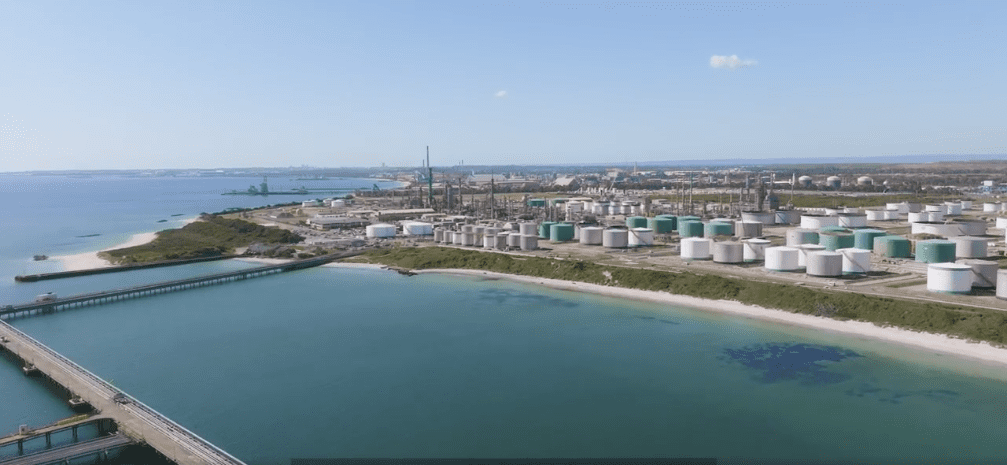
BP will continue to operate its Kwinana site in Perth as an import facility amid paused plans to develop into a producer of renewable fuels. Photo: BP
GLOBAL oil and gas company BP has paused work on its Kwinana Renewable Fuels project, dealing a setback to Australia’s emerging sustainable aviation fuel and renewable diesel industry.
This news comes just months after the Western Australian Government approved the company’s planning application to build a biorefinery on BP’s 250ha site at Kwinana.
A BP spokesperson said the Kwinana site remained a key location for the company, and was currently utilised as an import facility.
“While bioenergy remains a core part of BP’s strategy, BP has decided to rephase the Kwinana Renewable Fuels project,” the spokesperson said.
“This involves adjusting the pace of delivery with a focus on improving capital efficiency and better alignment with government policies.”
Using feedstock which may include canola, of which WA is one of the world’s biggest exporters, the biorefinery is expected to form part of BP’s Kwinana Energy Hub, and produce SAF and synthetic paraffinic kerosene (SPK).
The project was reportedly in the front-end engineering design (FEED) stage.
A final investment decision was expected in late 2024 which could have seen the plant start producing renewable fuels from 2027.
Broader impacts
The Kwinana plant was one of the more advanced renewable fuel projects in Australia.
The decision to delay progressing the Kwinana plant has dealt a significant blow for players working to develop a domestic renewable fuels industry.
The second most advanced was Jet Zero Australia, which in December 2024 commenced FEED work for its Project Ulysses, a proposed biofuel facility in Townsville in North Queensland.
A partnership of Ampol, GrainCorp, and IFM Investors remains in the pre-FEED stage for a possible renewable fuel’s facility at Ampol’s Lytton refinery in Brisbane.
As a major canola crusher and the largest exporter of tallow and used cooking oil in Australia, GrainCorp was well placed to supply the feedstocks required for a biorefinery.
A GrainCorp spokesperson said the decision by BP to pause work at Kwinana demonstrated the importance of having policy settings and incentives needed to drive a new industry.
“We are working to develop the industry from the ground up, ensuring Australian feedstocks are used to support the decarbonisation of the Australian transport sector, to facilitate and promote Australia’s fuel independence, create jobs, and drive economic growth in regional communities,” the spokesperson said.
“Seeing an international fuel major preference their overseas options underscores the critical need for clear and stable policy settings to enable investment.
“Without this support, Australia risks missing the opportunity to develop a homegrown renewable fuels sector, allowing capital to move offshore to regions with stronger policies in place.”
The spokesperson said GrainCorp, alongside Ampol and IFM, continued to progress plans at the Lytton Refinery.
“We continue to work with IFM and Ampol progress the feasibility assessment of a renewable fuels facility at Ampol’s Lytton Refinery in Brisbane, and to explore the supply of homegrown feedstocks, including additional crushing capacity to supply canola oil to the renewable fuels sector.
“A sustainable domestic industry requires a reliable, locally-sourced feedstock supply chain, which is why we are working closely with government and industry partners to put the right conditions in place.”
Grain Central: Get our free news straight to your inbox – Click here

HAVE YOUR SAY